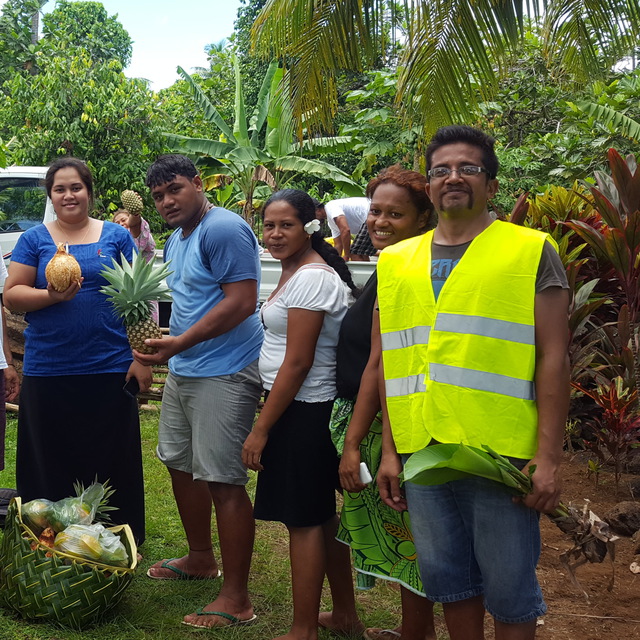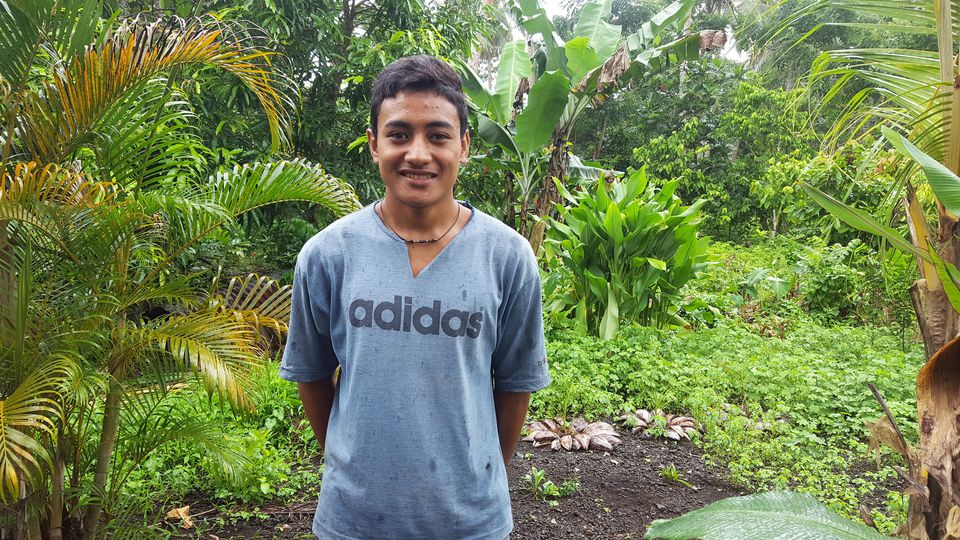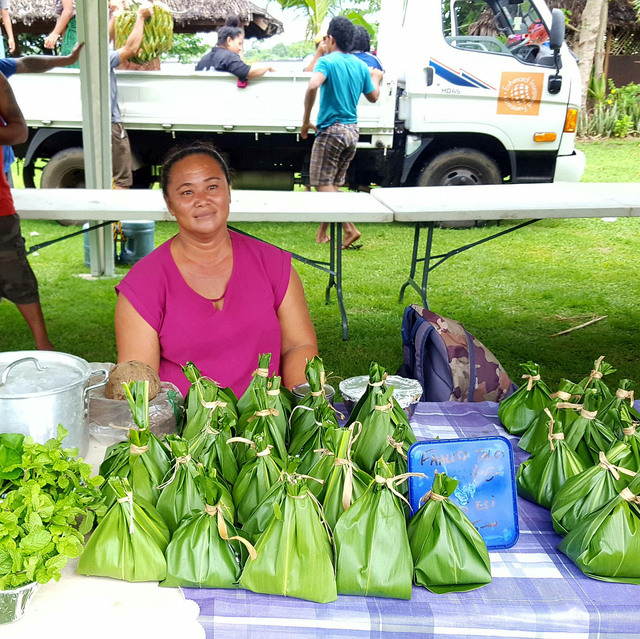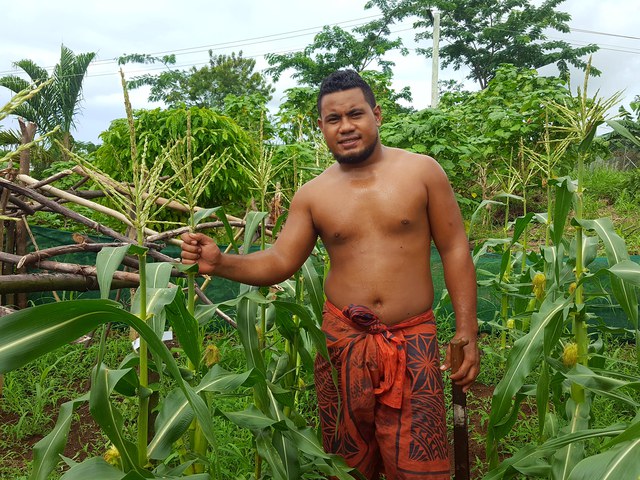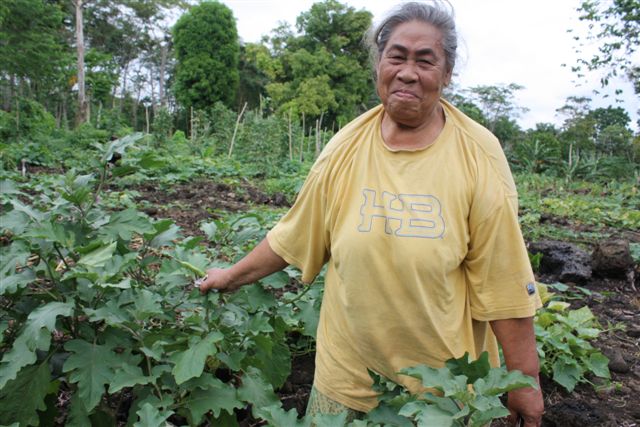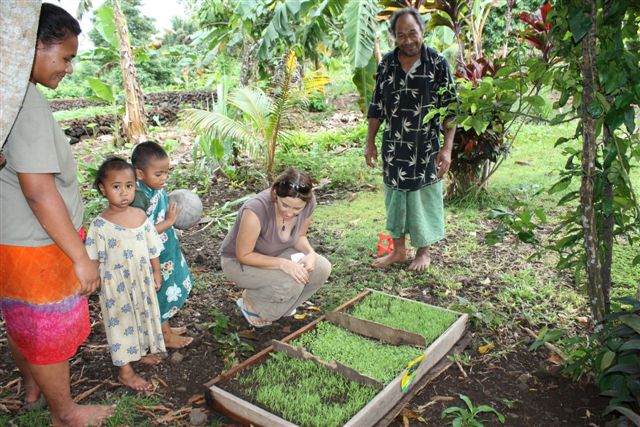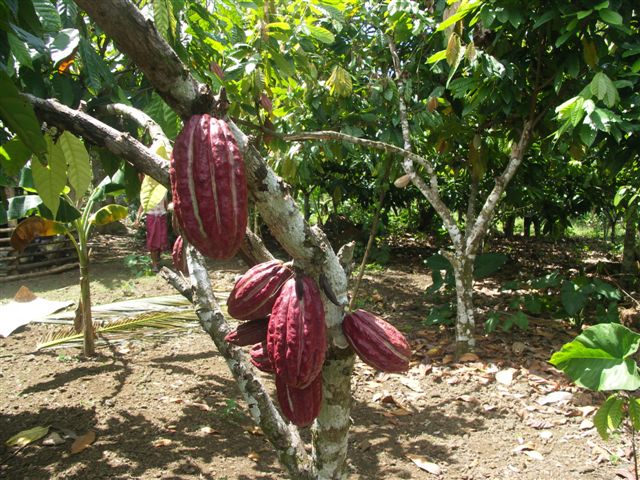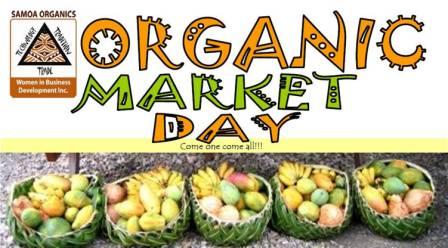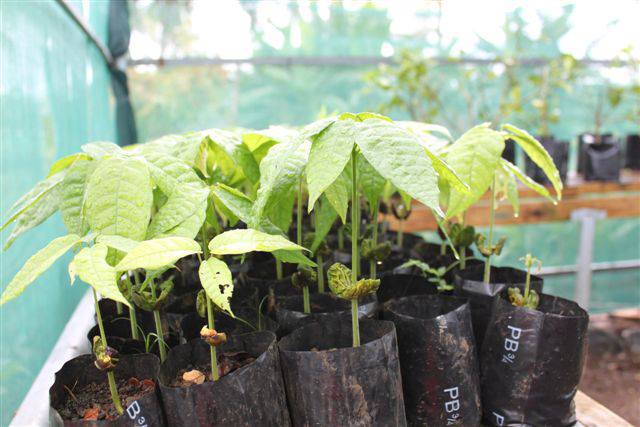Organics
Samoa is an island nation blessed with rich volcanic soil, abundant sunshine, tropical climate and generous rainfall. The verdant year-round growth is far from the pollution, pesticides, and contaminants of other nations. It is an ideal organic safe haven.
Through time, commitment and skills learned along the way, Women in Business have become leaders in organic systems in the Pacific Islands. Currently more than 700 Samoan families, working on 33,000 hectares of land, are fully organically certified to international standards (NASAA, the National Association for Sustainable Agriculture, Australia). Additionally, five processing companies and four entire villages have been organically certified.
It is one thing to grow organic food, but another to create sustainable, long-term business relationships, which is what Women in Business has done. Samoa's organic virgin coconut oil is now exported to The Body Shop as part of their fair trade enterprise. Kofe (coffee Samoa) is exported to a high-end roastery in New Zealand, and more than 15 tons of misiluki bananas are annually exported to New Zealand.
Benefits
of organic certification
Organic certification opens up niche, international markets for our clients, allowing greater potential for income-generation. WIBDI also help our farmers access these markets by acting as a middle-man, arranging for a large number of small producers to contribute in order to supply the amount of produce required by international clients. Examples of this include our work investigating access to the NZ market for Samoan organic bananas.
We are also involved in the Regional Organic Task Force, and through this body have assisted in the development of a set of regional organic standards, adapted to the particular conditions in the Pacific region, that have been approved by IFOAM. This is known as the Pacific Organic Standard, and is available for download in PDF form from the IFOAM website.
Why eat organic?
WIBDI's internationally recognised organic certification to the National Association of Sustainable Agriculture Australia (NASAA) standard is your assurance that products have been grown and handled according to strict procedures without persistent toxic chemical inputs.
It’s common sense — well-balanced soils grow strong healthy plants that taste great. Try an organic banana or tomato for a sweet and juicy flavor treat.
In a study done by Washington State University in Pullman, published in the April 19, 2001 issue of Nature, researchers measured the effects of an organic, a conventional and an integrated apple production system on the sustainability indicators of horticultural performance, soil quality, orchard profitability, environmental quality and energy efficiency. Taste was measured three ways. Mechanical analysis on fruit firmness at harvest and after six months' storage was higher for organic than its two competitors. The ratio of sugar content to acidity, an indication of sweetness, was higher among organic apples as well. These results were then confirmed by consumer taste tests.
Many US Environmental Protection Agency (EPA)-approved pesticides were registered long before extensive research linked these chemicals to cancer and other diseases. Now, the EPA considers 60% of all herbicides (weed killers), 90% of all fungicides (mold killers), and 30% of all insecticides (insect killers) as potentially cancer causing. Organic farming keeps harmful chemicals and pesticides out of the food we eat and beverages we drink. It also prohibits the use of antibiotics in animal feed, which are routinely used in conventional farming and is known to create dangerous antibiotic-resistant pathogens. Organic farms also benefit the farm workers who have high exposure to chemicals and synthetic pesticides.
The elimination of polluting chemicals and nitrogen leaching, done in combination with soil building, protects and conserves water resources. Organic farming reduces toxic farming runoff and pollutants that contaminate our water, soil and air.
Soil is the foundation of the food chain and the primary focus of organic farming. We’re facing the worst topsoil erosion in history due to agricultural practices of chemical intensive, mono-crop farming.
Organic agriculture respects the balance demanded of a healthy ecosystem: wildlife is an essential part of a total farm and is encouraged by including forage crops in rotation and by retaining fence rows, wetlands, and other natural areas.
Organic farmers have led the way, largely at their own expense, with innovative on-farm research aimed at reducing pesticide use and minimizing agriculture’s impact on the environment.
Organic farming is better for the environment, better for business, more energy efficient and makes better tasting fruit than conventional methods and most integrated production systems, according to the research conducted at Washington State University. (Natural Foods Merchandiser, June 2001)
The loss of a large variety of species (biodiversity) is one of our most pressing environmental concerns. The good news is that many organic farmers and gardeners have been collecting and preserving seeds, and growing unusual varieties for decades.
The USDA predicts that by the mid 2000s, half of US farm production will come from 1% of farms. Organic farming may be one of the few survival tactics left for the family farm and the rural community.
Now every food category has an organic alternative available in Samoa!
Women in Business Development run an Organic Basket service every Friday, providing people with organic produce and products every week.
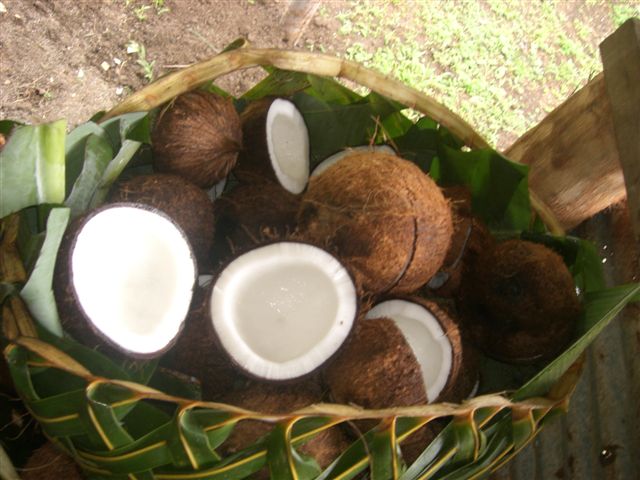
Read more about our longest-running organic project, our Virgin Coconut Oil project, or our more recent work on organic bananas.
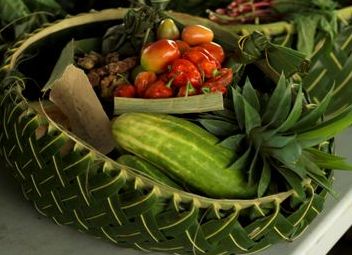
Certified organic fruit, vegetables, herbs, spices, and other produce are available for purchase through WIBDI by purchasing an organic basket.
